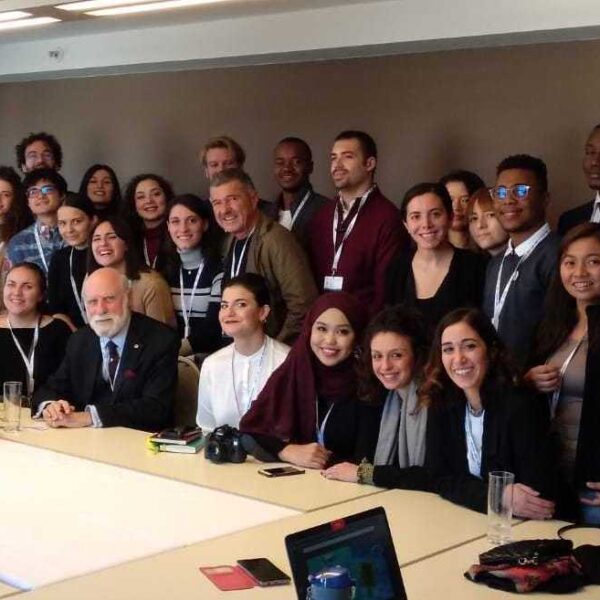The matter of how the Internet is governed is a critical one. How we manage this precious, global resource directly impacts our economic and social opportunities far into the future.
The Challenge
Internet governance refers to the processes that impact how the Internet is managed.
As policy makers and technical experts work to connect the remaining two-thirds of the world’s nations, the WAY in which the Internet is governed will likely have an impact on how we use it and how it evolves.
The Internet governance landscape is peppered with events and meetings this year as a number of key Internet policy issues are debated. There are key global, regional and local discussions underway about how to strengthen the Internet governance model in ways that will be meaningful to users around the globe, and how to be more inclusive of new ideas and perspectives.
The success of the Internet is rooted in the way it was built and able to grow: an open platform for innovation and sharing of ideas. It is this openness that has defined the Internet from the outset and has enabled it to become such a strong tool for positive change through new ideas and services that make a real difference to people all around the world.
It is our deep belief that the Internet cannot be regulated in a top-down manner, but its governance should be based on processes that are inclusive and driven by consensus.
The need to create a clear and simple ways for everyone – regardless of background – to understand and be a part of how the Internet is run is critical.
The Opportunity
Fortunately, there is a model in place that people around the world are fighting to protect.
In the policy world, this is talked about as the “multi-stakeholder approach.” Basically it means that everyone who has a stake in the future of the Internet needs to have a voice in how it’s run. A great example of this in action happens every year at the Internet Governance Forum (IGF), an annual event where anyone who cares about the Internet’s future can take part to help others learn best practices when it comes to how the Internet is governed.
But it doesn’t stop there.
Users: Nearly three billion Internet users are both creators of information as well as consumers. Websites, blogs, videos, tweets, can all be broadcast and accessed in the largest mass medium imaginable. Audio and video calls and conferences can be set up and received without regard to distance or cost.
Business: The Internet allows for what we call “permissionless innovation”, where anyone can create and offer a service. This helped Jeff Bezos to start Amazon.com in his garage with just his savings, and expand rapidly into one of the largest global retailers. Likewise, Google and Facebook were started by students, alongside thousands of other entrepreneurs around the world who have pursued their dreams online.
Governments: Governments can use the Internet to deliver services and levy taxes and, in turn, can choose to enable citizens to elect, petition, and oversee their governments online.
People’s ability to build Internet as a uniquely universal platform that uses the same standards in every country so everyone can interact with everyone else is one of the most spectacular, and most hopeful, success stories of our time.
But the story isn’t over yet. More needs to be done.
We must continue to work to clear away complications and open doors for everyone to have their voices heard when it comes to how Internet policies are developed.
Image credit: Stonehouse Photographic / Internet Society, CC BY-NC 2.0





